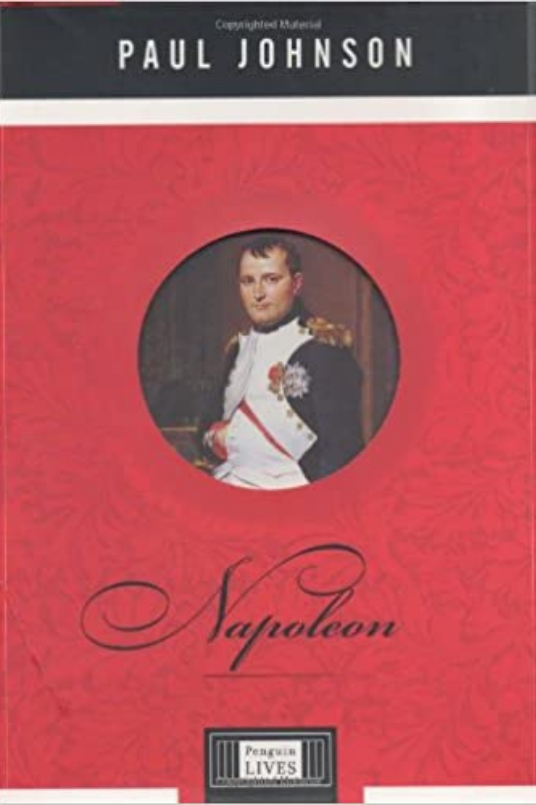With everything that he accomplished, it’s no easy task to compress all his life into less than 500+ pages (which is the length of most historic biographies).
This book has less than 200 pages and it delivers.
If you want to get started reading biographies, this is the perfect book.
Flow: 5/5
Actionability: 3/5
Mindset: 5/5
Some of My Highlights:
“In the end, force was the only language he understood, and in the end it pronounced a hostile judgment on him.”
“The Congress of Vienna must be regarded as one of the most successful settlements in history.”
“…Beethoven, who dedicated his Eroica Symphony to the First Consul, then tore out the page in anger when he became emperor…”
“Bonaparte has more books written about him than any other individual, with the sole exception of Jesus Christ.”
“He felt he had a destiny, and most of his life he was confident in it.”
“He made a habit of working these things out in his head, so that they could easily be dictated for orders. He also became a master map reader, with a gift amounting almost to genius for visualizing terrain from a two-dimensional, often fallible piece of engraved paper.”
“Bonaparte would consult a map and give the answer in exact days and hours.”
“In the artillery parc at Valence, he tried to educate himself by intensive reading, as the young Winston Churchill was to do during his Indian service.”
“Nothing is more powerful than an idea whose time has come.” – Victor Hugo
“He was right to thank his stars for his survival, for many were executed on much less evidence.”
“The object of power, in his view, was not only to crush opposition to his will, but more usually to inspire fear, so that power did not need to be used at all.”
“That, he calculated, would have been Caesar’s choice.”
“The Revolution was a lesson in the power of evil to replace idealism, and Bonaparte was its ideal pupil.”
“He had no religion since (so he said), at the age of nine he heard a preacher insist that his hero, Caesar, was burning in hell.”
“He is said to have remarked: ‘Europe is too small for me… I must go East.'”
“Here was not merely a successful general bent on conquest, but the embodiment of French culture, leading a ‘civilizing mission’ to the seat of the world’s first urban society.”
“Only 29 Frenchmen were killed, the Egyptians losing more than 10,000, and this easy victory, immediately termed ‘the Battle of the Pyramids,’ did wonders for the morale of the entire expedition.”
“As it happens, Bonaparte’s Egyptian expedition is now remembered not so much for military defeat as for cultural success.”
“If Bonaparte became a ruler of exceptional treachery and mendacity, it must be remembered that he emerged from a political background where a man’s word meant nothing, honor was dead, and murder was routine.”
“It was confirmed by plebiscite on 6 November, with 3,571,329 ‘yes’ votes to 2,570 ‘noes.’ (Bonaparte was the first dictator to produce fake election figures.)”
“The speed with which his armies moved was also due to the strong motivation of his troops. The armies identified their interests and their future with Bonaparte, and the lower the rank, the more complete this identification became.”
“This freedom to take risks, which Bonaparte enjoyed except at the outset of his career, was not enjoyed by any of his opponents, all of whom were surrounded by jealous rivals and subject to political authority.”
“Moreover, in Bonaparte’s armies, unlike all the others, promotion was usually on merit.”
“Good food (where possible), high rates of pay, and loot – these were the material inducements Bonaparte offered. He also fraternized with the men.”
